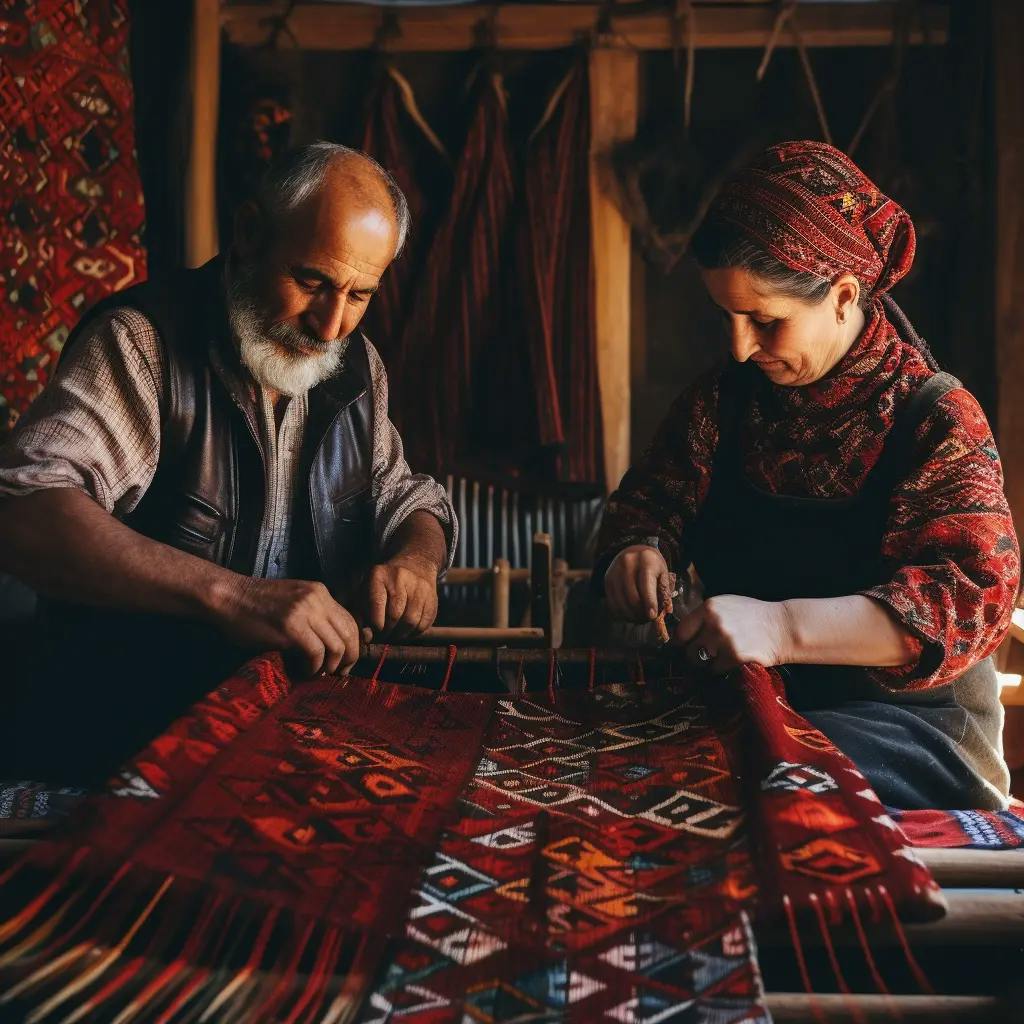
The History and Craftsmanship of Turkish Goods
The crossroads of continents and cultures, Turkey has long been a melting pot of diverse traditions, influences, and art forms. This rich tapestry of history is beautifully manifested in the country's goods and craftsmanship. From the bustling bazaars of Istanbul to the artisan workshops in Anatolia, Turkish craftsmanship tells a story of tradition, innovation, and unparalleled skill.

Ancient Roots
Turkey's craftsmanship dates back to the ancient civilizations that once graced its land, including the Hittites, Urartians, and Lydians. These ancient people laid the foundation for metallurgy, pottery, and textile arts, many techniques of which are still in practice today.

Textile Excellence
One of Turkey's most revered contributions to global craftsmanship is its textiles. The Seljuks and later the Ottomans refined weaving techniques, bringing about luxurious fabrics like brocade and velvet. Turkish carpets, with their intricate designs and vivid colors, became sought-after items along the Silk Road.
Today, products like premium Turkish socks and beanies incorporate traditional weaving techniques, ensuring a blend of comfort, durability, and elegance.

Ceramics and Pottery
The town of Iznik, in particular, became a hub for ceramic and tile production in the 16th century. The characteristic cobalt blue and turquoise tiles, which adorn many historical mosques and palaces, are a testament to the skilled artisans of the period.

Metals and Jewelry
The Grand Bazaar in Istanbul is a testament to Turkey's long-standing tradition of metalwork. From ornate silverware to intricate gold jewelry, Turkish smiths have been perfecting their craft for centuries. This rich history of metallurgy has its roots in the Bronze Age civilizations that once inhabited Anatolia.

Embracing Modernity Without Forgetting Tradition
While Turkish goods have evolved over the centuries, embracing modern techniques and designs, they have never strayed far from their roots. The essence of Turkish craftsmanship lies in its ability to harmonize tradition with innovation. Modern-day artisans continue to imbue their work with the spirit of their ancestors, ensuring each product is not just a commodity, but a piece of living history.
In Conclusion
To own a Turkish-made product is to hold a piece of history in your hands. The craftsmanship speaks of a journey through time, of ancient empires, bustling trade routes, and skilled artisans who poured their soul into their creations.
As you wear your Turkish socks or hat, remember that it's not just an accessory, but a testament to a legacy of craftsmanship that has been passed down through generations.